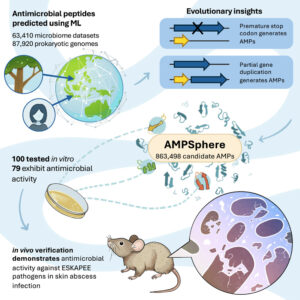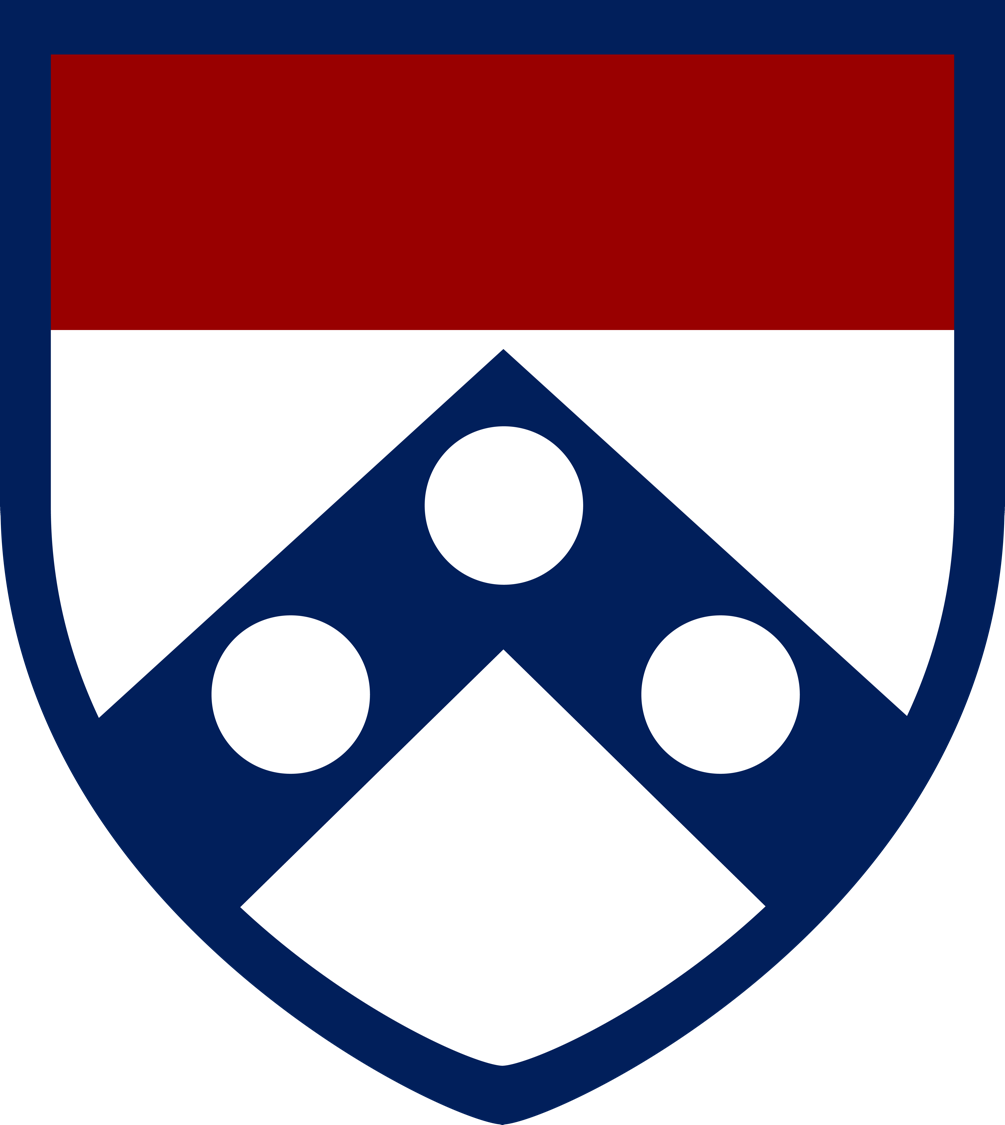Introduction
Antimicrobial resistance is one of the greatest threats facing humanity and novel antibiotics are urgently needed. In a recent study published in Cell, our team, along with fantastic collaborators, leveraged computational techniques to accelerate the search for new antimicrobial compounds, specifically focusing on antimicrobial peptides (AMPs). By employing advanced genome mining methods, we identified potential antimicrobial compounds from a diverse range of organisms.
AMPSphere
Our machine learning-based approach explored 63,410 publicly available metagenomes and 87,920 high-quality microbial genomes to predict and classify antimicrobial molecules within the global microbiome. This extensive computational exploration led to the creation of AMPSphere, an expansive catalog featuring 863,498 non-redundant antibiotic molecules, most of which were previously unknown. One hundred of these antimicrobial compounds have undergone experimental testing, demonstrating their effectiveness against drug-resistant pathogens both in vitro and in a preclinical mouse model.
Our findings reveal a vast array of novel antimicrobial sequences, underscoring the potential of AI and machine learning to identify much-needed antimicrobials and opening new avenues for antibiotic discovery.
Conclusion
These findings highlight the immense potential of AI and machine learning in accelerating the discovery of much-needed antimicrobial agents. By leveraging computational techniques, we are opening up new avenues for antibiotic discovery and addressing the growing threat of antibiotic resistance.
For more information on this study, please refer to the full paper published in Cell: https://www.cell.com/cell/fulltext/S0092-8674(24)00522-1.
For more information, please contact:
Machine Biology Group
University of Pennsylvania
Authors:
Célio Dias Santos-Júnior, Marcelo D.T. Torres, Yiqian Duan, Álvaro Rodríguez del Río, Thomas S.B. Schmidt, Hui Chong, Anthony Fullam, Michael Kuhn, Chengkai Zhu, Amy Houseman, Jelena Somborski, Anna Vines, Xing-Ming Zhao, Peer Bork, Jaime Huerta-Cepas, Cesar de la Fuente-Nunez, Luis Pedro Coelho.
Published:
June 5, 2024
About Machine Biology Group:
The mission statement of the Machine Biology Group at the University of Pennsylvania is to use the power of machines to accelerate discoveries in biology and medicine.
